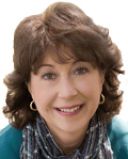
Relationships
What Is the Meaning of Meaning?
Must life and loss have a "why"?
Posted October 30, 2011

"As Good As It Gets"
One of the quotes I have posted on my dressing room wall is attributed to Carl Jung: "I am not what happened to me...I am what I choose to become."*
At first reading, his intention seems clear: "Don't let yourself be defined by the accidents of life that befall you. You have not yet experienced 'as good as it gets.' Keep growing into the self that has meaning for you."
But I think there is more to Jung's statement—which plunges me into the very heart of the question: "What is the meaning of meaning?"
In reviewing some of the articles I wrote a year ago that are part of my forthcoming book, A Beautiful Grief: Reflections on Letting Go, I found several references to the importance of finding meaning in my life as a survivor. My husband was dead, but I wasn't. So, now what? And, now why?

Why? is the crucial question
The "why" of life seems crucial. As Victor Frankl famously discovered, people with a deep sense of purpose had a better chance of surviving the Nazi death camps than those who did not.
But a purpose is nothing more than something to do—until we attach meaning to it. And that is what fascinates me: Must experience have a meaning if it is to move us forward? Why can't we be satisfed with just being here?
Clearly, meaning making is an important human function or we would not be so busy doing it. But is it useful? My coaching clients think so when I encourage them to identify their "bigger yes"—the foundational purpose that motivates them to say "no" to time wasters and "yes" to the people and things they really value. Identifying the meaning behind their actions helps them to take better action.
But, at some point, do meanings fall away, leaving behind pure presence and being? Is that what Jung meant by "choosing what I will become"?
It is a fact that I am a widow—a role that conjures all manner of images rife with meaning. In my mother's eyes, it remains a tragedy, which means I may never really be happy again because the beautiful life I enjoyed as Mrs. Stephen Eckl was unfairly aborted.
When I asked a group of hospice nurses, many of whom had lost their husbands, what it means to be a widow in today's world, they blanched. For them, widowhood was not a neutral fact.
For me, the fact that my husband died is both the worst and most important experience of my life. The worst because of how I have suffered his loss, and the most important because of the work and insight his death bequeathed to my future.
In response to Stephen's dying, I became a published author. Fulfilling that long-held goal means I am "good" in my own eyes. The fact that readers report how my work has helped them makes me feel that I may also be "good" in the eyes of the Divine Source that is my inspiration.
I continue to write and teach because I believe this to be my sacred labor—to extract truth from my own experience and share it with others in the hope of easing their burdens. I even have a mission statement: "To learn, to love, to teach, so that others may have a better life." Lots of meaning here.
Having a purpose, a project, a reason for continuing to live on this earth has been absolutely essential to my surviving and healing from Stephen's death. Writing has been my lifeline to a future I had to learn to want. And for that process I remain very, very grateful.
But what does it mean? Perhaps it means that by excavating spiritual growth from a terrible situation I have successfully become the "un-widow." As one who has always resisted convention, I have aspired to experiencing loss differently from what I perceived as the norm. The fact that I may have succeeded means that I'm still me. A certain sense of self has survived the complete disruption of my assumptive world. The meaning of that fact is "good."
Yet the question remains: Why must my experience mean anything at all? Why can't it just be a fact? Is it essential to reframe the horrific into a higher truth that gives life a transformational quality not found in the daily routine of living?
It would seem so. Not long after receiving Stephen's terminal diagnosis, we made a conscious shift from "Why us?" to "Why not us?" Believing ourselves capable of walking straight into our challenges as a comfort to us and an example to others gave purpose and meaning to what was otherwise absolutely senseless.
And perhaps making sense is the key to the meaning of meaning. Life can be so randomly inexplicable that we poor humans simply cannot cope with its relentless ambiguity. So we parse the immensity of being into bite-sized pieces designed to explain—if ever so imperfectly—what in the world we are doing here.
For example:
- If I can be a writer and a teacher, pleasant things may still happen in my life. In other words, I won't have already experienced "as good as it gets." The next 30 years may yet hold opportunity to be more than poor copies of a lovely 18 years with the love of my life—which term would actually imply that I may never again love so well. What would it mean if that turned out to be true?
- If, as Jung says, I am not defined by what happened to me, then I still have autonomy, dignity, and agency. I am on a continuum of growth, not a revolving hamster-wheel of sadness and loss—clearly, a positive meaning.
All of this makes sense to me. And yet, why do I need my life to make sense? What in me is so unsure of itself that it needs to have its worth continually reinforced, its very existence justified?
The only answer that comes to mind is: the ego—the not-self that intuits (while never admitting) that its existence is not entirely justifiable. Oh, yes, the ego is one of life's psychological necessities, at least for a while. We all make up this sense of self that is based on what works to cope with what we fear. It is how we navigate the rough seas of life in time and space. But I think we must eventually come to realize that the roles, the dramas, the stories—and the meanings we ascribe to them—are the means, not the end, to a life well lived.

Dame Cicely Saunders
Dame Cicely Saunders, one of the founders of the modern hospice movement, said, "You matter because you are"—proclaiming once and for all that we are, each one, worthy of love, respect, and compassionate care simply because we exist, not because we could ever possibly justify or explain that existence.
In the end, meaning falls away into the pure presence of unconditional love. If we grasp for a good grade on Judgment Day's love scale, we are still operating from the ego that, oh, so desperately, wants a gold star. But if we can rest in the illuminated landscape of what we have learned, we may actually find the peace we have tried to construct out of endless meanings, essentially fabricated to prove in one way or another that we are, indeed, worthy of the air we breathe.
Experience tells me that walking the grief journey both requires and provides a sense of meaning—a reason to keep going day after day, a way through the dark waters of loss. Meaningful purpose is a life raft that is absolutely necessary to sail from the old shore of sorrow to a new one of possibility. But, ultimately, life itself is reason enough to continue, if we can allow ourselves to so profoundly abide in the simple fact of our being here.
My hero, John O'Donohue, quotes Meister Eckhart as having said, "God has no why." I think that's what meaning means: To the individuated, actualized Self that Jung would have us become, it doesn't.
*I recall having read this quote in Memories, Dreams, Reflections and have seen it cited as such. In looking back through my underlining in the book, I don't readily find the quote. It would seem that Jung's thoughts in the chapter called "Retrospect" indicate that he felt both carried along by unseen forces and, yet, actively involved in shaping his life out of the "unexpected things" that kept happening to him.



